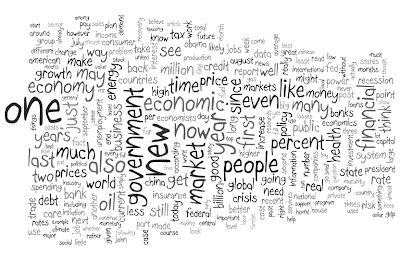A slightly misnamed book, as its subject matter is New Labour's progress on social policy goals, not economics. But, like most policy debates today, it's taken from an old Keynes quotation, so I guess that's OK. The author, Stein Ringen, led a debate at the RSA this week. The core thesis of the book is that the Labour government which took power in 1997 was well-intentioned, sincere, competent, visionary and had the economic wind at its back - but still achieved almost nothing in its four key social goals: health, education, reduction of crime and poverty. Ringen suggests that this failure arises from a built-in conservatism in the British constitution and political system. Because of centralisation of power in the prime minister's and chancellor's offices, there is nowhere in the political process to conduct a well-informed critical debate. Because of politicians' inability to "mobilise the effort of millions" towards new ideas, all policy becomes te...




